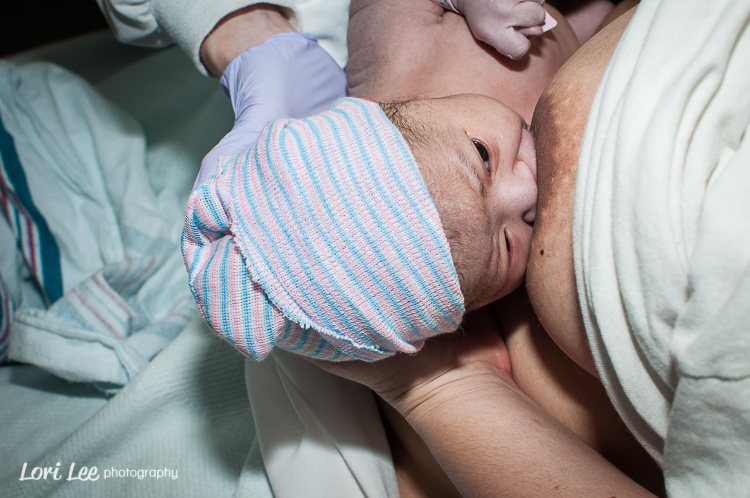You have read the breastfeeding books, taken a breastfeeding class, and maybe even attended breastfeeding support groups while you are pregnant. Education is important when it comes to breastfeeding your baby, but what is even more important is SUPPORT; support from your partner, support from your family, support from your community, and support from your health care providers.
It is in the earliest days when the breastfeeding relationship is the most vulnerable that this support is the most critical. Many breastfeeding experiences end before they really begin, before the baby has even been discharged from the hospital. The advice and suggestions of your hospital nurse or the availability of the hospital’s IBCLC will strongly influence whether or not a baby leaves the hospital exclusively breastfed.
The collected statistics displayed for the Greater Jacksonville Area do not include babies in the NICU or who had medical recommendations not to breastfeed (mother with AIDS, active herpes simplex virus with breast lesions, mother undergoing treatments such as cancer chemotherapy, etc.) The statistics only reflect babies who were given formula for elective, non-medical reasons. Babies did not need to drink breastmilk at the breast to be included in the exclusively breastmilk-fed percentages; mothers who were expressing their milk to feed to their babies by another method, such as bottle or syringe, were still exclusively breastmilk feeding.
The first percentage, “Exclusive breastmilk feeding,” reflects the number of babies in the hospital that year who were exclusively fed breastmilk during their stay with no elective feedings of any other kind (formula, sugar water, etc), regardless of a mother’s stated intention to exclusively breastfeed or not—she may have entered the hospital already knowing she wanted to either formula feed or combine feedings of formula and breastmilk. The second percentage reflects the number of babies with parents who filled out forms stating that their goal was to exclusively feed their babies breastmilk who were also then able to meet that goal during their entire hospital stay.
It obviously matters a great deal where you give birth as to how enabled you are to meet your breastfeeding goals. The amount of nurse breastfeeding education and support, the availability and amount of time the hospital’s lactation consultant can spend with the mothers and babies, and hospital policies greatly affect outcomes. St. Vincent’s Southside, recently recognized as one of the few “Baby Friendly” hospitals in Florida, is a clear standout for encouraging and supporting breastfeeding. Conversely, Shands looks like the most difficult hospital to successfully breastfeed or breastmilk feed in, with only one out of five healthy babies exclusively breastfed and only one out of every three healthy babies with mothers who came in with the stated goal to exclusively feed breastmilk leaving doing so.
This data was collected from July 2013 to June 2014. When you look at the Jacksonville Area statistics, keep in mind that the nationwide average during that time period is that 50% total exclusive breastmilk feeding and 64% exclusive breastmilk feeding considering mother’s choice. The Florida statewide average is 38% total exclusive breastmilk feeding and 51% exclusive breastmilk feeding considering mother’s choice. The source of the statistics is The Joint Commission’s healthcare quality data, based on numbers submitted by the hospitals themselves.
St. Vincent’s Southside (Jacksonville, FL):
Exclusive breastmilk feeding: 81% (113 babies)
Exclusive breastmilk feeding considering mother’s choice: 87% (106 babies)
Flagler Hospital (St. Augustine, FL):
Exclusive breastmilk feeding: 67% (126 babies)
Exclusive breastmilk feeding considering mother’s choice: 87% (98 babies)
Naval Hospital Jacksonville (Jacksonville, FL):
Exclusive breastmilk feeding: 71% (202 babies)
Exclusive breastmilk feeding considering mother’s choice: 77% (188 babies)
St. Vincent’s Medical Center (Jacksonville, FL):
Exclusive breastmilk feeding: 57% (167 babies)
Exclusive breastmilk feeding considering mother’s choice: 77% (123 babies)
Orange Park Medical Center (Orange Park, FL):
Exclusive breastmilk feeding: 51% (162 babies)
Exclusive breastmilk feeding considering mother’s choice: 72% (114 babies)
Baptist Medical Center/Wolfson’s Children’s Hospital (Jacksonville, FL):
Exclusive breastmilk feeding: 56% (262 babies)
Exclusive breastmilk feeding considering mother’s choice: 60% (248 babies)
Baptist Medical Center of Nassau (Fernandina Beach, FL):
Exclusive breastmilk feeding: 50% (224 babies)
Exclusive breastmilk feeding considering mother’s choice: 58% (196 babies)
Baptist Medical Center Beaches (Jacksonville Beach, FL):
Exclusive breastmilk feeding: 51% (152 babies)
Exclusive breastmilk feeding considering mother’s choice: 57% (138 babies)
Memorial Healthcare (Jacksonville, FL):
Exclusive breastmilk feeding: 29% (126 babies)
Exclusive breastmilk feeding considering mother’s choice: 51% (72 babies)
Shands Jacksonville Medical Center (Jacksonville, FL):
Exclusive breastmilk feeding: 21% (185 babies)
Exclusive breastmilk feeding considering mother’s choice: 32% (125 babies)
When you are choosing a hospital to give birth in, along with the other things you are looking at, such as location, healthcare provider compatibility, and c-section rates, please remember to keep breastfeeding statistics in mind, as well! It can make a difference!
~Chrissy Bodin, IBCLC


